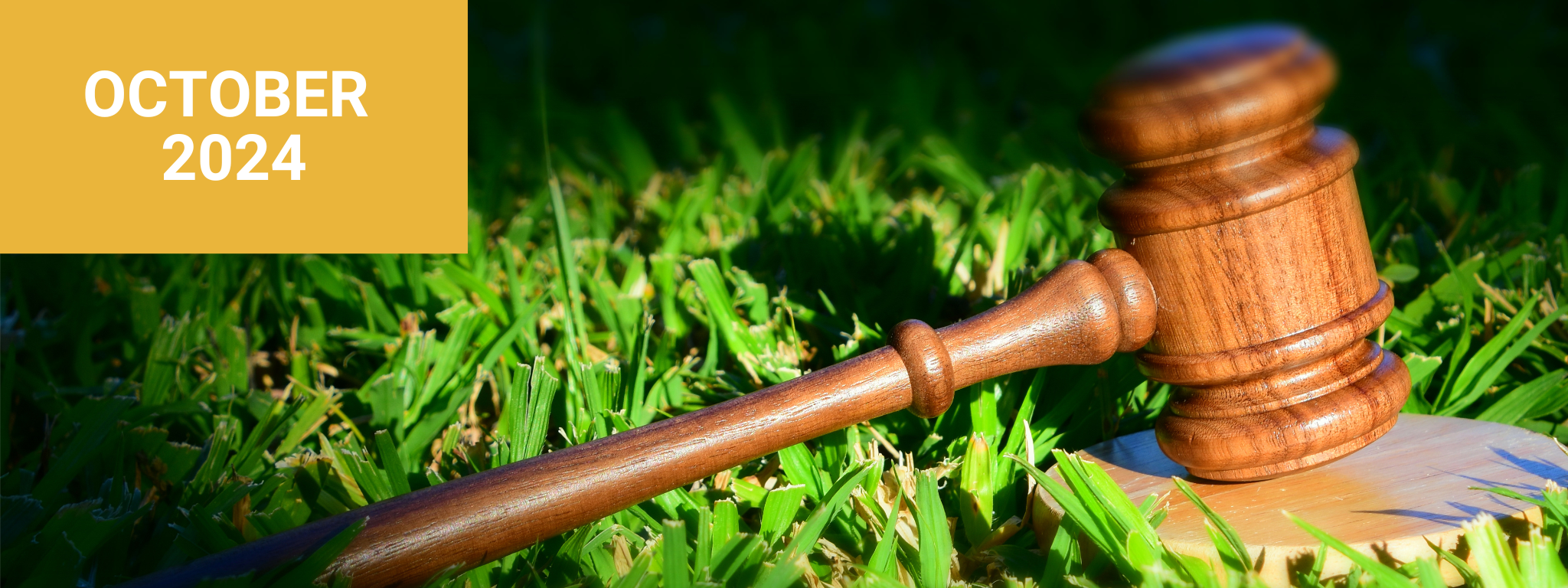
Law, Finance, and Litigation: addressing climate change risks in Europe
Climate change is a major threat to human well-being, posing risks to social and legal normativity, as well as challenging the current configuration of institutional structures. In this sense, legal frameworks and socio-political arrangements have addressed the adverse effects of climate change through norms, financial mechanisms, and litigation. Against this background, this course will provide an overview of the legal instruments and financial mechanisms aimed at regulating climate change, its risks and future consequences in Europe.
Bertinoro (FC)
Location
7th – 18th October 2024
Dates
88 h
Total number of hours
20
Number of participants
€ 400,00
Registration Fee
July 21st
Application deadline
Climate change is a major threat to human well-being, posing risks to social and legal normativity, as well as challenging the current configuration of institutional structures. In this sense, legal frameworks and socio-political arrangements have addressed the adverse effects of climate change through norms, financial mechanisms, and litigation. Against this background, this course will provide an overview of the legal instruments and financial mechanisms aimed at regulating climate change, its risks and future consequences in Europe.
Regarding climate law, participants will explore the international and European climate legal framework and the role of national and regional adjudicatory bodies in advancing climate action. The course will also focus on financial arrangements and related obligations both at the international level and within the European Union, exploring how these mechanisms can affect decision-making processes. Finally, the training will provide a broad overview of the climate litigation scene in Europe and how it may push for accountability of public and private decision-makers, identifying the main litigation actors, enforcement mechanisms and the potential risks it may pose in the future for both the public and private sectors.
The course will cover the following topics:
- International and European climate legal framework, instruments and mechanisms,
- Human rights and climate change: challenges, obligations and violations,
- Climate finance EU Policy Framework and climate finance landscape,
- Climate finance and the legal obligations within the European Union,
- Climate change impacts on the financial sector,
- The profile of climate litigation in Europe,
- The role of science in climate litigation cases,
- Enforcement mechanisms and legal remedies of climate litigation,
- The role of domestic and regional courts,
- Climate litigation as a risk to public authorities and private actors,
- Due diligence law and the corporate climate accountability.
The Autumn School is mainly geared towards Ph.D. students, postdocs and young professionals in the field of Climate finance & Climate law studies with a strong interest in the dynamics of climate litigation cases.
The course will include lectures by leading researchers in the fields of climate finance, and climate law and litigation, as well as seminars, practical sessions, and group projects. Lectures will take place in the mornings, while the afternoons will be reserved for tutorials, programming exercises, discussions, and group work.
By the end of the course, participants will have a comprehensive understanding of climate law at the international and regional levels, the EU policy framework related to climate finance and an overview of the dynamics of climate litigation. They will therefore be able to identify the main legal norms in force and currently shaping the climate scene, and understand its main potentials and shortcomings. Students will also be more familiar with the climate finance landscape at the international and European levels, knowing what the main actors and mechanisms are. Students will enhance their understanding of potential impacts of climate change on the financial sector. Finally, students will have a comprehensive knowledge of climate litigation cases in Europe, what enforcement mechanisms are available for cases brought before adjudicatory bodies, and how climate litigation is reshaping systems of accountability and may therefore become a risk for decision-makers in the future.
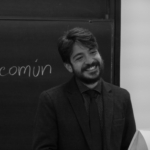
Enrico Buono – Co-director of the Course
Enrico Buono is a Postdoctoral Research Fellow in Comparative Public Law at the Universities of Perugia and Campania Luigi Vanvitelli, and a Wissenschaftliche Hilfskraft at the Deutsch-französische Juristenausbildung (Universität des Saarlandes, Germany). He achieved the National Scientific Qualification as Associate Professor in Comparative Law with unanimous consent, and has been a visiting researcher at the Universidad Católica Boliviana San Pablo in La Paz, Bolivia, while working for the Tribunal Constitucional Plurinacional in Sucre.
For his works on Environmental Constitutionalism, Enrico won the SIRD Younger Comparatists 2022 Prize, awarded by the Italian Society for Research in Comparative Law. He’s also the national coordinator of the Environmental Constitutionalism Observatory (OCA) at DPCE Online, a Class-A Comparative Law Journal.

Giulia Galluccio – Co-director of the Course
Dr. Giulia Galluccio holds a degree in Business Administration from Bocconi University and a PhD in Science and Management of Climate Change from Cà Foscari University of Venice. She is Director of the Future Earth Research School and Director of the Information Systems for Climate Science and Decision-making (ISCD) Research Unit at CMCC. She is a science policy analyst working at the interface of science, policy and society, analysing scientific research and providing insights to inform policy decisions. She is currently Vice-Chair of the European Joint Initiative on Connecting Climate Knowledge for Europe (JPI Climate), a pan-European intergovernmental initiative that brings together European countries to jointly coordinate climate research and fund new transnational research initiatives that will provide useful climate knowledge and services for post-COP21 climate action. Her specific research interests include climate policy governance and adaptation finance. She’s currently coordinating the Horizon Europe project MAGICA “Maximizing the synergy of European research Governance and Innovation for Climate Action” and leading activities on capacity building, project pipeline and resilient investment strategies for the Horizon Europe project CLIMATEFIT (Financing adaptation to climate change).

Catherine Higham
Catherine Higham is a Policy Fellow who coordinates the Climate Change Laws of the World project – the most comprehensive global resource on climate legislation and policy. She joined the Grantham Research Institute after nearly a decade of policy and advocacy work in the not for profit sector. Before shifting her focus to research and policy analysis on climate change law and governance, she spent many years working in the field of human rights. Her current research is focused on understanding emerging trends in climate law and understanding the impact of different legal interventions on climate governance and climate action. She sits on the Board of the not-for-profit organisation the Climate Litigation Network.

Aoibhinn Ní Shúilleabháin
Dr Ní Shúilleabháin is an Associate Professor in the School of Mathematics & Statistics. Her research investigates issues in Mathematics Education, with particular focus on teacher education. An award-winning science communicator, her work also focuses on making STEM more accessible for those who have historically been left out. In 2022 Aoibhinn was nominated by An Taoiseach (Prime Minister) Mícheál Martin to chair Ireland’s national Citizens’ Assembly on Biodiversity Loss. The recommendations of the Assembly were published in March 2023 and were endorsed later that year by the cross-parliamentary committee on Environment and Climate Action.

Alberto Pirni
Alberto Pirni, PhD, is an Associate Professor in Moral Philosophy at the Sant’Anna School of Advanced Studies in Pisa, where he leads the Research Area in “Ethics and Global Challenges.” He teaches courses on public ethics, climate justice, and technology ethics. He served as President of the Paritetic Commission and Vice-President of the Joint Ethical Committee between Sant’Anna School and Scuola Normale Superiore. He is a representative in RUS and is involved in multiple PhD programs and the National PhD School in “Sustainable Development and Climate Change”. He is the author of 5 monographs, 4 co-authored volumes, and over 220 essays in volumes and refereed national and international journals (in 6 languages). He is also the editor and co-editor of more than 25 volumes and monographic issues of scientific journals. His main research fields involve German Classical Philosophy, public ethics and institutional ethics, ethics of technology and ethics of robot companionship, ethics of sustainability, theories of motivation, climate ethics and theories of (climate, energy, intergenerational) justice.

Giovanni Conti
Dr. Giovanni Conti graduated cum laude with a Master’s in Theoretical Physics from the University of Parma in 2011 and earned his Ph.D. in 2016 from Ca’ Foscari University of Venice, specializing in the Science and Management of Climate Change with a focus on Dynamic Climatology. Following three and a half years as a postdoctoral researcher at Hamburg University, where he worked on chaotic advection, turbulence, and passive tracer dynamics, he joined the CMCC in 2020. Dr. Conti’s research spans a range of topics, including the study of climate phenomena such as ENSO, employing advanced techniques like Path Integrals, Transition Matrices, and the Fokker-Planck equation. His expertise also covers chaotic advection, turbulence, point vortex dynamics, and data assimilation. Currently a Junior Scientist at CMCC, Dr. Conti is focused on developing an atmospheric data assimilation system and investigating the biases that impact seasonal forecast simulations.

Liliana Lizarazo Rodriguez
Liliana Lizarazo-Rodriguez is research professor of Sustainability Law at the Brussels School of Governance, Vrije Universiteit Brussel. She is Principal Investigator of the European Research Council (ERC) grant Curiae Virides that investigates how transnational ecological disputes become lawsuits, in the framework of GVCs. She is the deputy director of the Global Network of Human Rights and the Environment (GNHRE). She is also the director of other research projects, such as the Horizon Europe MSC Mother Earth, Ecotrilema and (co)promotor of the House of Sustainability Transitions. Liliana studied Law (Universidad del Rosario (Colombia) and UNED (Spain)), Development studies (University of Antwerp (IOB)) and obtained her PhD at the University of Ghent (Belgium). Her publications are available at ORCID and Research Portal of the VUB.

Luca Saltalamacchia
Luca Saltalamacchia is a civil lawyer, qualified to practice before higher courts. He primarily focuses on strategic litigation in the areas of climate, environment, and human rights. He has initiated several lawsuits before Italian courts and the Italian and Dutch National Contact Points for the OECD Guidelines, against Italian companies, in order to defend the rights of local communities affected by economic activities. He is one of the founders of the “Rete Legalità per il Clima (Legality for Climate Network),” a network of legal experts that addresses the interrelations between law and climate change, through which he has launched various climate-related lawsuits against the Italian state and climate-altering Italian companies.
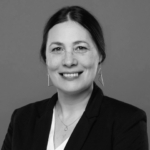
Marta Torre-Schaub
Marta Torre-Schaub is Senior Professor at the CNRS since 2001. She works at the Institut des Sciences Juridique et Philosophique de la Sorbonne (ISJPS). She is expert on Environmental and Climate Change Law. She teaches Environmental Governance at Sciences Po Paris and Climate Change Law at Université Paris 1 Panthéon-Sorbonne. She currently supervises 4 PHD students at Université Paris 1 and several Advanced Masters’s students. In 2018, she founded the interdisciplinary CLIMALEX International network on Law and Climate change, which she has been directing ever since, as well as the Environmental Hub of ISJPS. She has a Master’s degree in Law, an Advanced Masters degree on Business Law and a DEA in Intellectual Property Law. She also has a DEA in Human and Social Sciences. She obtained her PHD with unanimous congratulations from the jury in 2001 at the Université de Paris 10. The year after she received a special PHD Award (Dupin Aîné Prize from the
Chancellerie des Universités). She was qualified as Maître de conférences by the CNU (2002) and admitted to the CNRS national competitive examination (2002), where she has been a full Tenured Professor ever since. She obtained her HDR (Habilitation à diriger de recherches) in 2012 with High Honors.
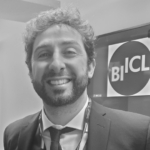
Ivano Alogna
Dr Ivano Alogna is the Research Leader in Environmental and Climate Change Law at the British Institute of International and Comparative Law (BIICL) and heads the Institute’s programme in this field. He is an Associate Member of the Sorbonne Research Institute in International and European Law, Sorbonne Law School, and a member of several international expert groups in environmental law. He has lectured at universities in every continent and co-edited influential books like Climate Change Litigation: Global Perspectives (Brill, 2021) and Climate Change Litigation in Europe (Intersentia, 2023). His award-winning PhD thesis – Special Jury Prize by the French Society of Environmental Law (SFDE) – La circulation des modèles juridiques dans le domaine de l’environnement (Sorbonne Law School, University Paris 1 Panthéon-Sorbonne) is forthcoming with LGDJ.

Hans-Martin Füssel
Dr. Hans-Martin Füssel has more than 25 years of experience in climate change research and policy advice. He holds a Ph.D. in Physics from the University of Potsdam (Germany) for his work on climate impacts modelling. During his academic career, Hans-Martin Füssel worked at the Potsdam Institute for Climate Impact Research, Stanford University, and Ritsumeikan University. He has consulted UNDP, UNFCCC, WHO, IPCC, the World Bank, the European Commission, and various national governments on climate change. He served as author, review editor, reviewer, and member of government delegations for several IPCC Assessment Reports. Since 2010, Hans-Martin Füssel works as an expert on climate risks and adaptation at the European Environment Agency. In this position, he has led many cross-cutting reports and projects related to climate change impacts and adaptation in Europe. Most recently, he coordinated the first EU-wide climate risk assessment published in March 2024.

Elisa Fiorini Beckhauser
Elisa Fiorini Beckhauser is a PhD student in Law and Sustainability at the Department of Legal Sciences of the University of Salento (Italy), and a researcher at the Euro-Mediterranean Centre on Climate Change in the Institute for Climate Resilience. She holds a bachelor’s degree in law from the Federal University of Santa Catarina (Brazil) and is involved in international initiatives such as the ‘Climate Litigation in the Global South’ project of the Global Network for the Study of Human Rights and the Environment. She is also co-leader of the ‘Next generation environmental law research’ project of the Early Career Specialist Group of the World Commission on Environmental Law, and is an expert of the Harmony with Nature Network of the United Nations in the category of Young Professional in Earth-Centred Law.

Giorgia De Giacomi
Giorgia De Giacomi is a City Councillor in Bologna, where she advocates for climate neutrality, sustainable urban development, intergenerational equity, and impact measurement.
She holds a MSc in Resource Economics and Sustainable Development from the University of Bologna and works as a Sustainability Advisor for the private sector, helping businesses adopt greener practices and measure their environmental impact.

Giorgia Pavani
Giorgia Pavani (Phd) is Full Professor of Comparative Public Law at the University of Bologna. She has coordinated the Jean Monnet Project “New Policies and Practices for European Sharing Cities” – EuCity, and the Erasmus+ Capacity Building 2017-2020 “Nuevo programa de posgrado para la formación de OPeradores Transnacionales e INterculturales para la defensa de la naturaleza y la construcción de la paz en la Comunidad Andina” – OPT-IN and the Unibo’s Team of Jean Monnet Network 2019-2023 “Sharing economy and Inequalities across Europe (SHINE)”. She has been awarded a Jean Monnet Chair 2022-2025 “A new paradigm of solidarity and sustainable cities in the European framework (SO_CITIES). She edited New Policies and Practices for European Sharing Cities, Alma Mater Studiorum Università di Bologna, Bologna, 2019.

Fulvio Leonzio
Fulvio Leonzio is PhD candidate in European Law at the University of Bologna. He conducts his research in the field of EU Law and Local Government Law. His research interests are focused in detail on the EU’s interest in cities from the sustainable development perspective; the evolving perspectives of Città metropolitane in the Italian legal system. He spent a three-month research period at the University of Barcelona (UB), Faculty of Administrative Law. He has held and currently holds teaching assistantships at university courses related to the disciplinary areas of Administrative Law and Comparative Public Law. Since July 2024, he has been admitted to the Italian legal bar.
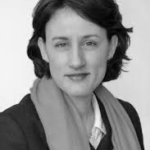
Delphine Hedary
Delphine Hedary is Councillor of State at the French Council of State. Delphine Hedary was in charge of the legislative committee for the Citizens’ Climate Convention in 2020-2021; in the past, she was responsible for preparing the Environment Charter in 2002-2003 and chaired the Estates General on the Modernisation of Environmental Law in 2013.
Location
The course will be at the University Residential Center of Bertinoro (CE.U.B.).
Bertinoro is halfway between the cities of Forlì and Cesena, 6 km from SS9 (Via Emilia). Forlì is the town of reference for transport by train and bus to and from Bertinoro.
Accommodation
The accommodation will be at the University Residential Center of Bertinoro. Please remember that participation in presence is mandatory.
The school is offering limited financial assistance to cover the accommodation costs at the Center of Bertinoro over the entirety of the two-week stay. If you are interested, please check the section below.
For those who won’t get the financial assistance, all the costs will be communicated during the selection process.
The school will provide and offer lunches and dinners for all the participants. Participants are free to organize themselves at their own expense upon notice. The school will not cover any extra costs.
Transport
Nearest airport: Bologna’s airport “Guglielmo Marconi”
Nearest train station: Forlì Station (20 min. far from Bertinoro by car)
On how to get to the Centre, please check this link
Given that most of the participants will arrive in Bologna – especially from abroad – the school will organize a shuttle to bring participants from Bologna to Bertinoro. More details will be given to the selected candidates.
The school offer limited financial assistance based on the applicant’s needs. It will cover accommodation expenses in Bertinoro. If interested, please specify it in the application form in the dedicated section. You can also leave a statement (max 200 words) explaining why you should benefit from this assistance.
The assistance WILL NOT cover travel costs.
Since there is a limited number of places, you are encouraged to apply early to avoid disappointment.
If accepted, you will receive an email confirming your financial assistance by secretariat@fersschool.it
The maximum age at the time of application is 35 years old. The Autumn School is mainly geared towards Ph.D. students, postdocs and young professionals in the fields of Climate finance & Climate law with a strong interest in the dynamics of climate litigation cases.

